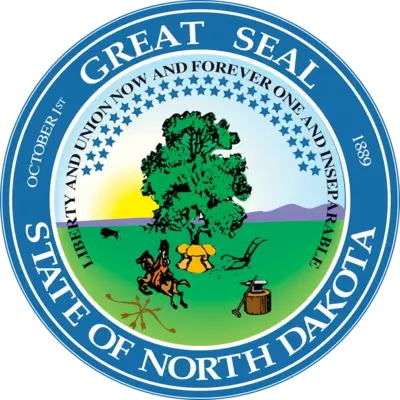North Dakota Quitclaim Deed Form
A North Dakota quitclaim deed is a legal document used in property transactions when the grantor transfers their interest in the property without any guarantees about its title. Essentially, it’s a way of saying, “You get what I have, no more and no less.”
The main characteristic of a quitclaim deed is that it conveys only the grantor’s interest at the time of the transfer, which could range from full ownership to none. These deed templates are often used in informal transactions, particularly among family members. Their simplicity is also helpful in resolving title issues, but they offer no protection to the grantee against title defects or claims from other parties.
Build Your Document
Answer a few simple questions to make your document in minutes
Save and Print
Save progress and finish on any device, download and print anytime
Sign and Use
Your valid, lawyer-approved document is ready
Quitclaim Deed Laws and Requirements in North Dakota
The North Dakota Century Code dictates the specific requirements concerning quitclaim deeds.
Signing Requirements
A quitclaim deed can be validly executed in North Dakota only if it is signed by the grantor in the presence of a notary public. All prerequisites to recording instruments can be found in Section 47-19-03.
Recording Requirements
For recording purposes, Section 47-19-07 of the North Dakota Century Code stipulates that a quitclaim deed must be filed in the recorder’s office of the county where the property is located. The recorder must endorse the fee amount directly on the instrument recorded.
Fees
According to Section 11-18-05, the fees for recording a quitclaim deed are structured based on the document’s number of pages. The fee for a deed of one to six pages is $20 and for documents exceeding six pages, $65, plus an additional $3 for each page beyond the first twenty-five. Additionally, a fee of $1 for each section of land listed beyond the first ten sections must be recorded in the tract index.
Additional Forms
The Statement of Full Consideration (SFC) documents the total amount paid for a property, as Section 11-18-02.2 of the North Dakota Century Code outlines. This form must accompany the deed when it is presented for recording at the county recorder’s office to ensure compliance with state laws.
How to Fill Out and File a Quitclaim Deed in North Dakota
Filling out and submitting a quitclaim deed in North Dakota requires several steps to guarantee its legal validity and accurate recording:
- Start by obtaining a quitclaim deed form that complies with North Dakota requirements. You can download it on our site or use our document builder.
- Include the full legal names and addresses of both the grantor (the person transferring the property) and the grantee (the person receiving the property).
- Provide a detailed legal description of the property. It can be found on the previous deed or obtained from the county assessor’s office.
- State the amount of money being exchanged for the property, if applicable, or note if the transfer is a gift.
- The grantor must sign the deed in the presence of a notary public. The notary will verify the grantor’s identity and witness the deed’s signing.
- The quitclaim deed must be filed with the recorder’s office in the county where the property is located. The recorder will then endorse the fee on the document and enter it into the public record.
The grantor and grantee should retain duplicates of the notarized and filed quitclaim deed to resolve any disputes or questions about property rights that may arise.

Looking for more North Dakota templates? We provide free forms and simple customization experience to anyone who wants having fewer to none difficulties when confronted with papers.